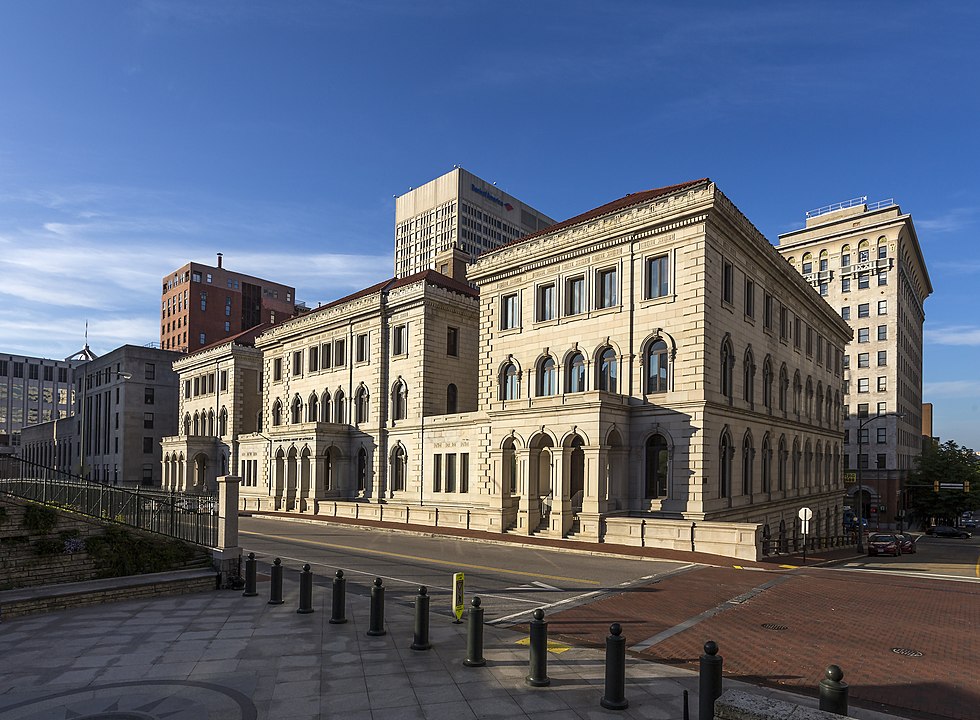RICHMOND, Va. (CN) — The Fourth Circuit established a new precedent Monday, reversing a two-decade-old ruling that barred plaintiffs awarded preliminary injunctions but not a final order from being considered a prevailing party.
This past January, an en banc Fourth Circuit heard from attorneys representing drivers with suspended licenses who were granted a preliminary injunction after questioning the constitutionally of a now-repealed Virginia policy that automatically suspended licenses for nonpayment of fines and court costs.
"Because the plaintiffs here 'prevailed' in every sense needed to make them eligible for a fee award, we vacate the district court's denial of attorney's fees and remand for further proceedings," U.S. Circuit Judge Pamela A. Harris, a Barack Obama appointee, wrote for the court.
A federal judge issued the preliminary injunction determining Damian Stinnie and his co-plaintiffs would likely succeed in showing violations of their due process. A magistrate judge later recommended denying their request for attorney's fees citing the circuit's 2002 ruling in Smyth v. Rivero.
In Smyth, a group of women seeking welfare sued the commissioner of the Virginia Department of Social Services for requiring applicants to either identify the father of any child for whom aid was requested or, if uncertain of the child's paternity, provide the first and last names of all individuals who might be the father.
The lower court entered a preliminary injunction barring enforcement of the paternity identification policy. When the women sought attorney fees as the prevailing party, the Fourth Circuit refused to grant them that status and said the injunction was not a court order that equated to a winning verdict.
Smyth set the standard for the next 21 years for seeking attorney fees in the Fourth Circuit. Before requesting attorney fees, the plaintiffs had to prove they were the prevailing party, a hurdle that since 2002 was impossible for them to clear.
"This initial hurdle amounted to a brick wall," Harris wrote for the panel.
The magistrate judge bound by Smyth noted in a 2021 report recommending denial of the drivers' legal fees that the Fourth Circuit policy stands alone and against a broad consensus of other circuits.
The drivers argued that the Supreme Court's 2008 decision in Winter vs. Natural Resource Defense Council, which stemmed from the Navy's use of sonar equipment that hurts marine life, set forth a new standard for issuing preliminary injunctions that only requires a plaintiff to be likely to succeed on merits.
"Plaintiffs present a strong argument that the rationale supporting the Fourth Circuit's decision in Smyth has been materially undermined," U.S. Magistrate Judge Joel C. Hoppe wrote in his report.
In her opinion for the en banc Fourth Circuit, Harris cited the Supreme Court's decision in Winter as a critical reason to revisit Smyth. Harris said Smyth can lead to the government gaming the system, like the commissioner in this case who secured a stay so that the General Assembly could repeal the statute and moot the case.
"When the court confirms the likely merit of the plaintiff's claim, the government will have ample time to cease the challenged conduct, moot the case and avoid paying fees," Harris wrote for the court. "That leaves the plaintiff, who likely devoted considerable resources to obtaining the preliminary injunction, holding the bag."
Harris said Smyth has the opposite effect of what Congress intended when passing section 1988 of Title 42 in the United States Code, aimed at furthering the policy of facilitating access to judicial process for the redress of civil rights grievances.
"As this case so unfortunately demonstrates, instead of opening the courthouse doors to meritorious civil rights claimants, Smyth's rule gives the government the key," Harris wrote. "Allowing it to lock out civil rights plaintiffs whenever their success seems imminent."
Monday's opinion does not entitle prevailing parties to attorney fees but makes them eligible. Judges will still determine reasonable fees.
Four judges appointed by Republican presidents dissented, writing that temporary relief is insufficient to determine the prevailing party.
"A court must resolve at least one issue once and for all on the merits, not merely predict how issues are likely to be resolved," U.S. Circuit Judge Marvin Quattlebaum Jr., a Donald Trump appointee, wrote in dissent.
The case will be remanded to the lower court for reevaluation in light of the reversal of Smyth.
Subscribe to Closing Arguments
Sign up for new weekly newsletter Closing Arguments to get the latest about ongoing trials, major litigation and hot cases and rulings in courthouses around the U.S. and the world.









